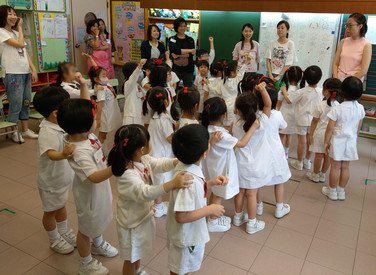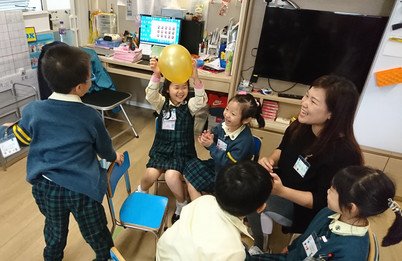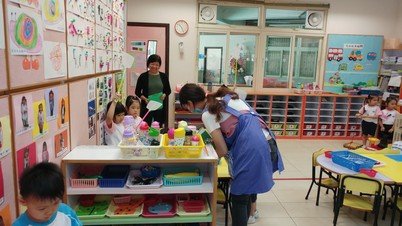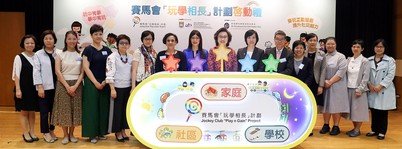Playing for Change
The “Play n Gain” Programme fosters children’s social-emotional learning in natural ways, and at the same time, improves parents’ understanding of the role of play.
Before digital devices became widely popular, children learned social and emotional skills by playing games that involve interaction, such as tag and ‘sleeping pirate’. In today’s digitised world, these skills have deteriorated through lack of use, and many children find it difficult to interact successfully in face-to-face situations.
Encouraging parents and teachers to play simple interactive games with young children at every opportunity is at the core of the Jockey Club “Play n Gain” Project, a mediated play education programme funded by the Hong Kong Jockey Club Charities Trust. The programme, which aims to build children’s social and emotional skills, is implemented by the Centre for Advancement in Inclusive and Special Education (CAISE) in the Faculty of Education. The mode of play that the project promotes is any face-to-face interactive game, while props may not be necessary. By using parents and teachers as agents of change, the play programme hopes to build a community that fosters children’s social-emotional learning and communication in natural ways, and at the same time, improves parents’ understanding of the role of play.
The programme is structured around five elements known as the 5 Ps in the Social Star Mirror Model devised by Dr Sylvia Liu, Director of the Jockey Club “Play n Gain” Project.
The 5 Ps are: Play, Positive reinforcement, Parent training, Programme, and Point of breakthrough.
- Play builds on children’s natural ability to learn through activity and to follow game rules. Within the programme it is possible to identify any children who find interaction with others difficult and to give them extra support.
- Positive reinforcement focuses on giving children positive feedback when they display good social behaviour and emotional control while playing.
- Parent training refers to training parents to become game-trainers and to partner with teachers in encouraging play.
- Programme is to train parents and teachers at kindergartens and in the community using interactive games to guide children respect for others, taking turns, and following rules – social skills they can use in schools and in daily life.
- Point of breakthrough is a marker of success in the project, as children achieve success in their social skills development. For parents and teachers, breakthrough comes when they become effective leaders of play.
The programme has completed the first of three years, and six kindergartens throughout Hong Kong have already taken part — approximately 540 children, along with parents and teachers.
The impact on teachers, parents and especially children has been very positive. “We can see that their social competence goes up as their play competence goes up,” Dr Liu said. She said children who participated in the programme were better able to maintain friendships with others, communicate more effectively and resolve conflicts. Teachers also reported that their relationship with the children had improved and class management was easier.
“It helps develop not just social skills, but also cognitive skills and self-control,” said Dr Man Tak Yuen, Principal Investigator of the project.
One of the parents is Dr Yuen himself. He said participation as a parent was a way to learn more about your child, build relationships with teachers, and gain confidence in parenting. “It’s also a lot of fun,” he added.






